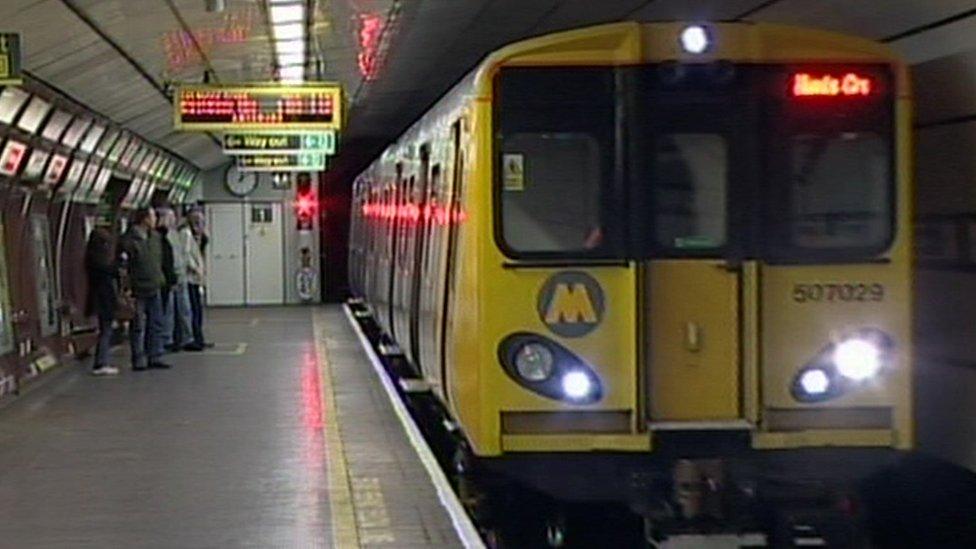Northern, Southern rail and Merseyrail staff on strike
- Published
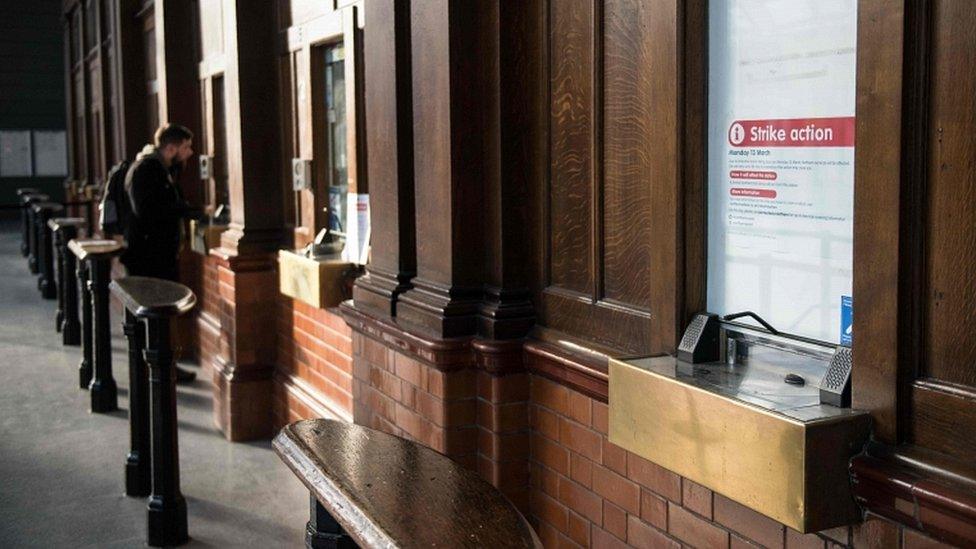
Passengers appear to have largely stayed away from the rail network
Passengers appear to have largely stayed away from the railway network as staff from three train firms across England held 24-hour strikes.
Guards and drivers working for Merseyrail, Northern rail and Southern rail took action over proposals for driver-only-operated (DOO) trains.
Up to 2,000 rail staff have walked out in the dispute, but only limited disruption was reported.
Northern rail thanked customers for "altering travel plans".
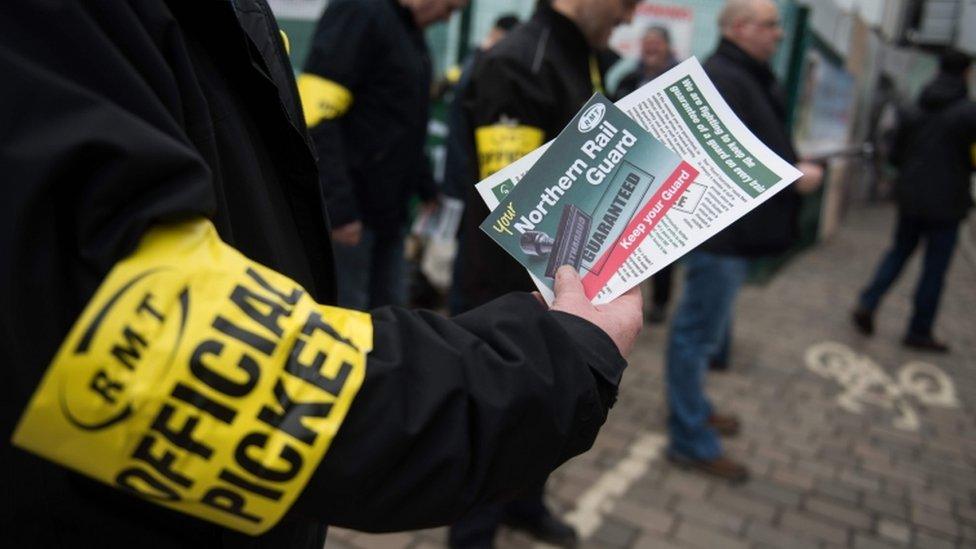
RMT general secretary Mick Cash said there was "rock solid" support for the walkouts
Members of the Rail, Maritime and Transport (RMT) union held their 30th strike day in an ongoing dispute with Southern, but the dispute has now spread to the north of England.
Commuters at railway stations including Manchester Victoria reported stations being quieter than normal.
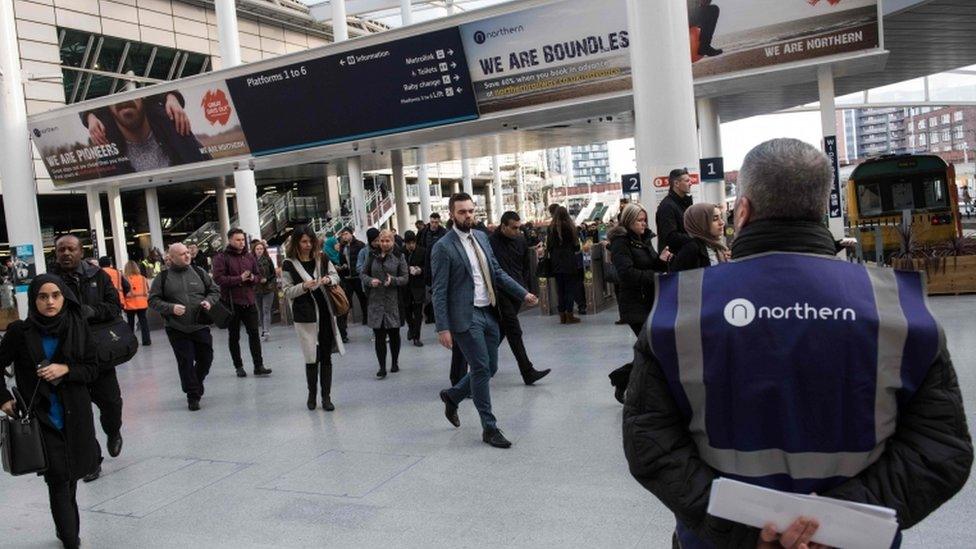
Northern is winding down its services between 17:00 and 19:00
Paul Barnfield, regional director at Northern, thanked passengers for "working with us".
Services on many routes were wound down from mid-afternoon, he said, with "very few trains" running after 17:00 GMT.
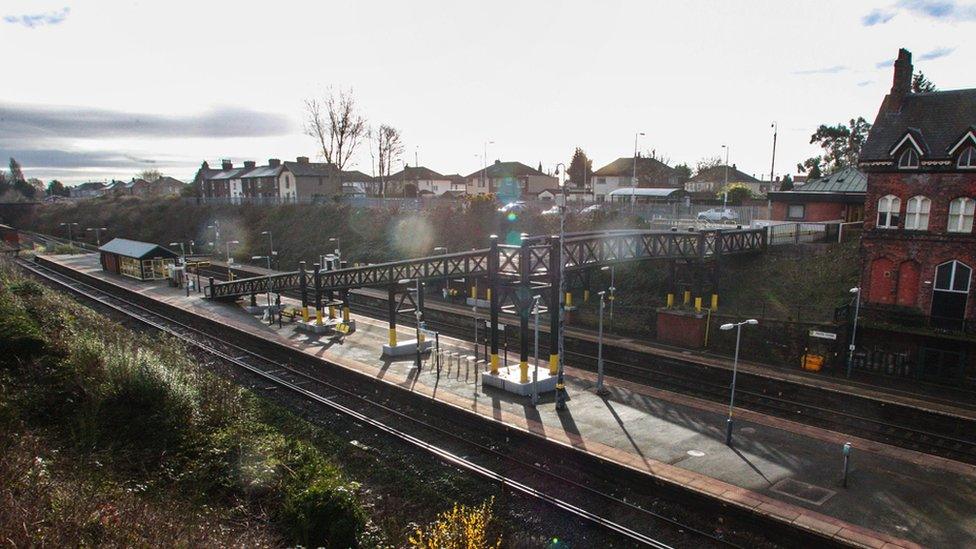
Hunts Cross station near Liverpool was quiet during rush hour

Disruption on Monday
The RMT union is opposing plans to make trains driver-only-operated.
Southern: A number of its train services were not running, external - including between Clapham and Milton Keynes and London and Brighton.
Merseyrail: About 20% of services were running with trains, external every 30 minutes on most, but not all, lines between 07:00 and 19:00, with a full break in service from 11:00 to 14:00. There were no trains running on the Ellesmere Port, Kirkby and Hunts Cross lines
Northern: It was running 40% of its normal services, external, with trains operating on its busier routes between 07:00 and 19:00 but wound down from 17:00. The firm said it would run 300 rail replacement bus services.

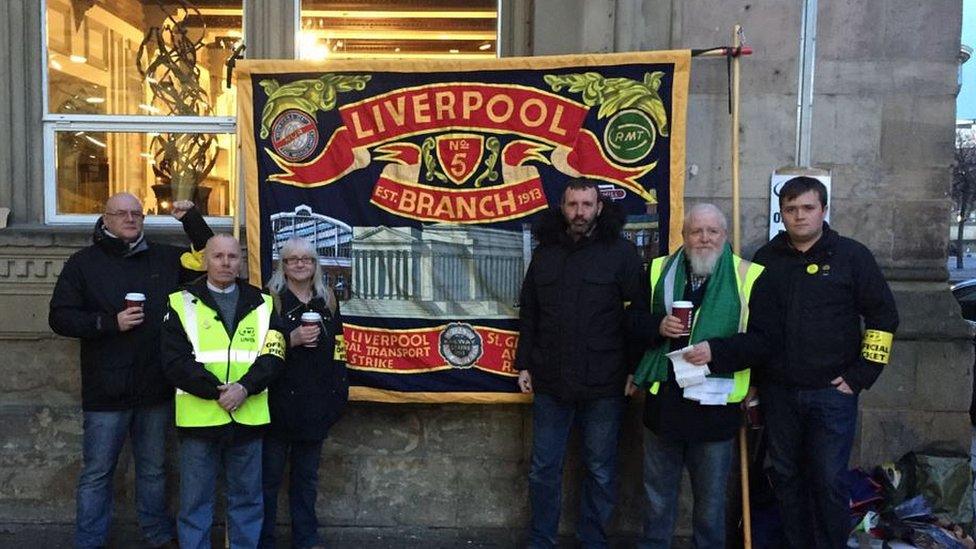
Merseyrail said it had run a "much reduced" service
Merseyrail members have refused to work "rest days" since 6 March and a bid by the company to derail the strike action on Thursday was rejected by the High Court in London.
Disruption to its services on Monday included a full break in service from 11:00 to 14:00, while all services in and out of Liverpool were to finish by 19:00.
The company's deputy managing director, Andy Heath, said the "much reduced" service on the planned timetable was due to train drivers choosing "not to cross picket lines".
A statement on the Merseyrail website added: "We are sorry that we are unable to run the previously advertised timetable today.
"This is because train drivers, who are not part of the industrial action taking place on the Merseyrail network today, have decided not to cross RMT picket lines."
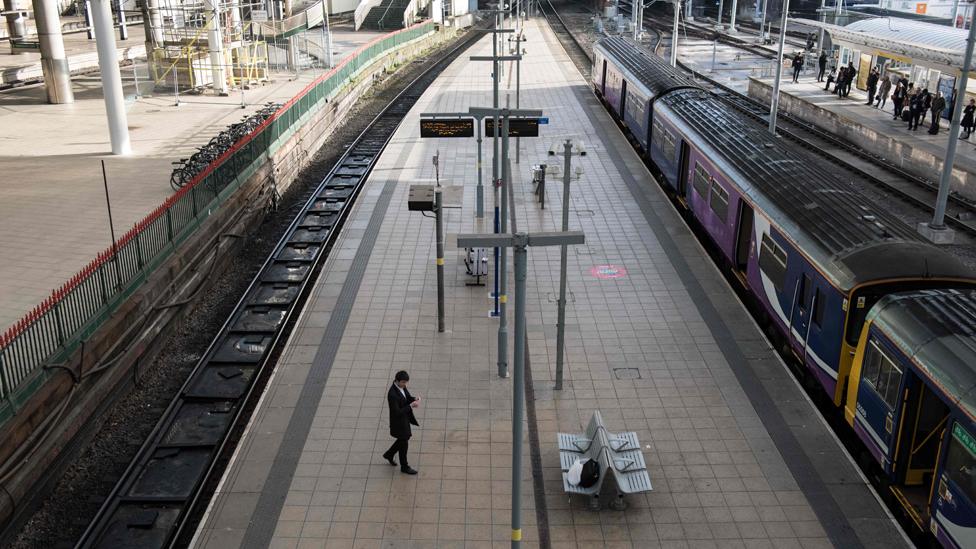
A single passenger waits at Manchester Victoria
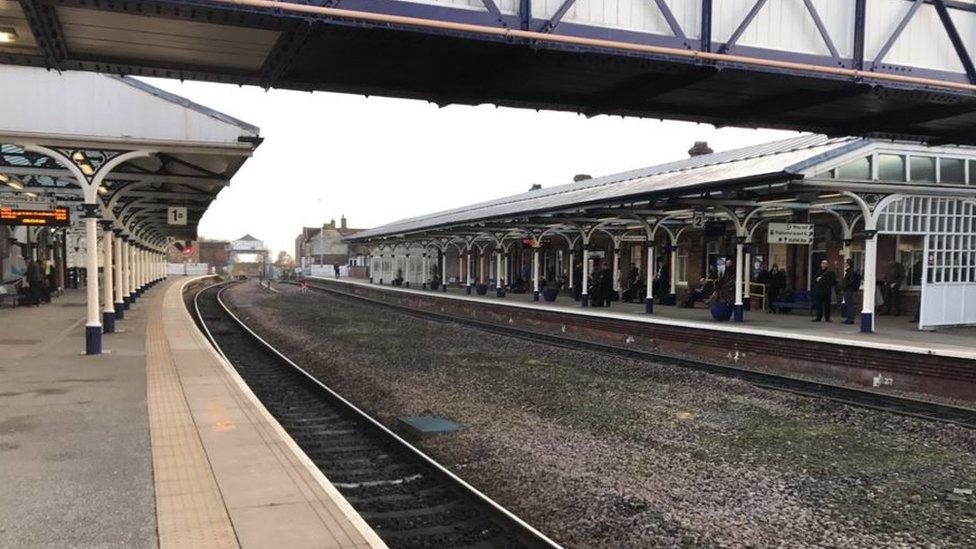
There are no Northern Trains stopping at Selby in North Yorkshire
RMT general secretary Mick Cash said the union's position on driver-only-operated trains was "perfectly clear" and added it would "not agree to any introduction of DOO".
He added there was "rock solid" support for the walkouts, including the Southern network action which "continues to hold firm in the fight for rail safety nearly a year on".
Management at all three affected rail companies have said they want a negotiated solution and deny jobs will be lost.

Analysis: Richard Westcott, BBC transport correspondent
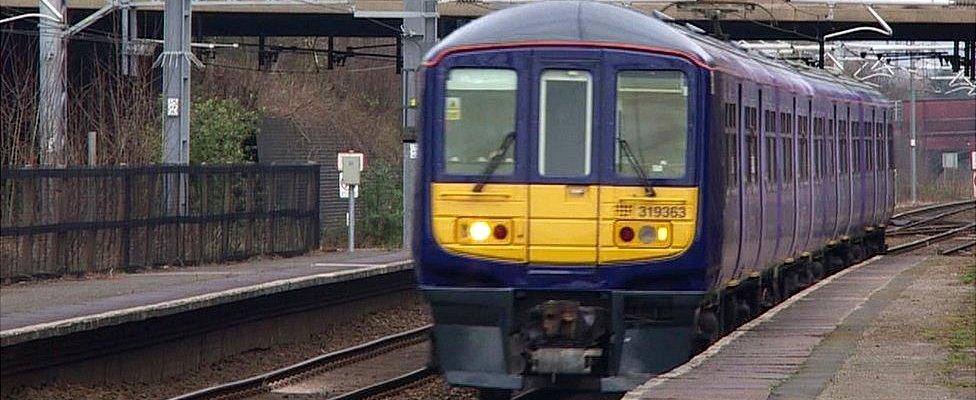
It's the south and the north today, but could this dispute keep spreading across England?
The government's made it clear that it wants an expansion of "driver-only-operated" trains and that puts it at loggerheads with the unions.
The Department for Transport talks about introducing them in the next two franchises about to be awarded, South Western and West Midlands.
The unions say it's a long-term ploy to get rid of all train guards and save money - they claim it puts passenger safety at risk.
But rail bosses argue it's about modernising the service, freeing up the second on-board person to deal with passengers rather than closing the train doors.
Handing all the safety jobs to the driver means you don't HAVE to have two people on every train before it can leave the station. That would shrink the power of the RMT, because more trains would be able to run if their guards went on strike in the future.

Paul Plummer, chief executive of the Rail Delivery Group, which represents train operating companies, said the industrial action was "completely unnecessary and will be very painful".
He said: "Rail companies are willing to guarantee pay and jobs; new trains which customers desperately want enabling better services, no threat to safety and this is a very early stage of discussion."
Theresa May's official spokesman said the prime minister was "disappointed ...that once again the RMT are disrupting passengers across the country".
He said: "These strikes are unnecessary. The RMT should return to talks and help deliver the high-quality rail services that passengers deserve."
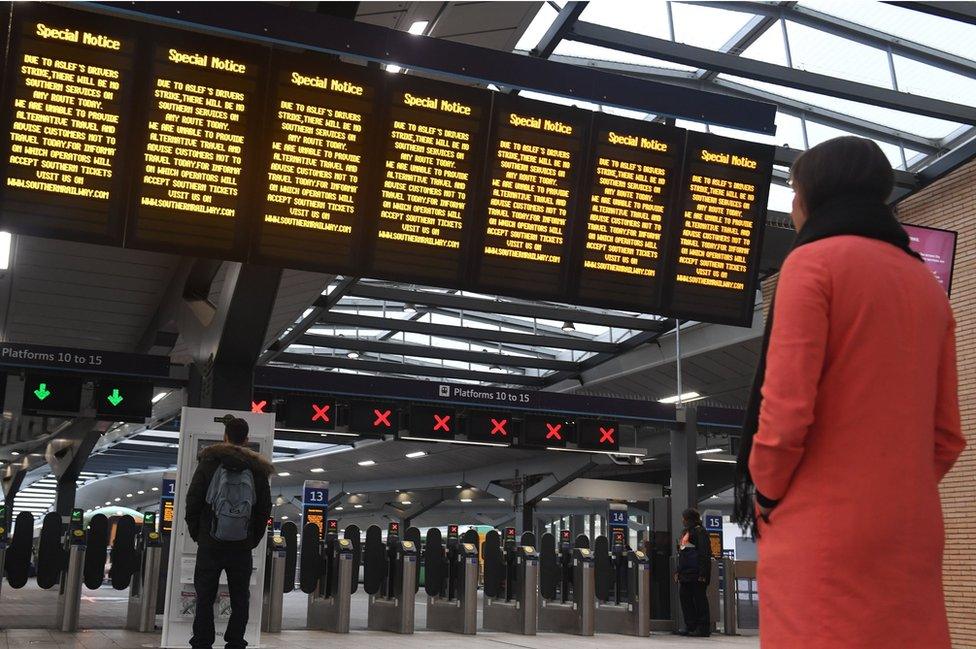
Southern rail passengers have faced months of delays and disruption
Arriva Rail North, which operates Northern trains, proposes to modernise the network by 2020 with the introduction of 281 new carriages, 243 upgraded trains, 2,000 extra services each week and better stations.
It has promised to protect jobs and pay and said it was "disappointed" by the strike.
Merseyrail plans to introduce a new fleet of 52 (DOO) trains from 2020 and said none of the permanent guards or guard managers would lose their jobs.
The company said it "pledged to do everything we can to bring the dispute to a satisfactory and swift conclusion".
'Strike misery'
Southern has said the RMT union is "hell-bent on further strike misery".
Its parent company, Govia Thameslink Railway (GTR), said the union chose to put its members "through even more pointless industrial action."
All three strikes are due to end at midnight.
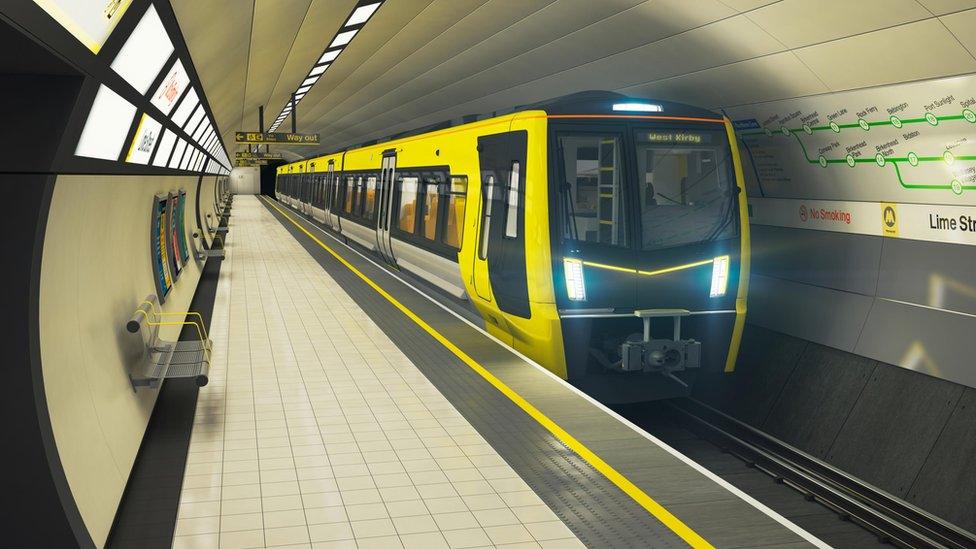
Merseyrail plans to introduce a new fleet of driver-only-operated trains from 2020
- Published28 February 2017

- Published22 February 2017
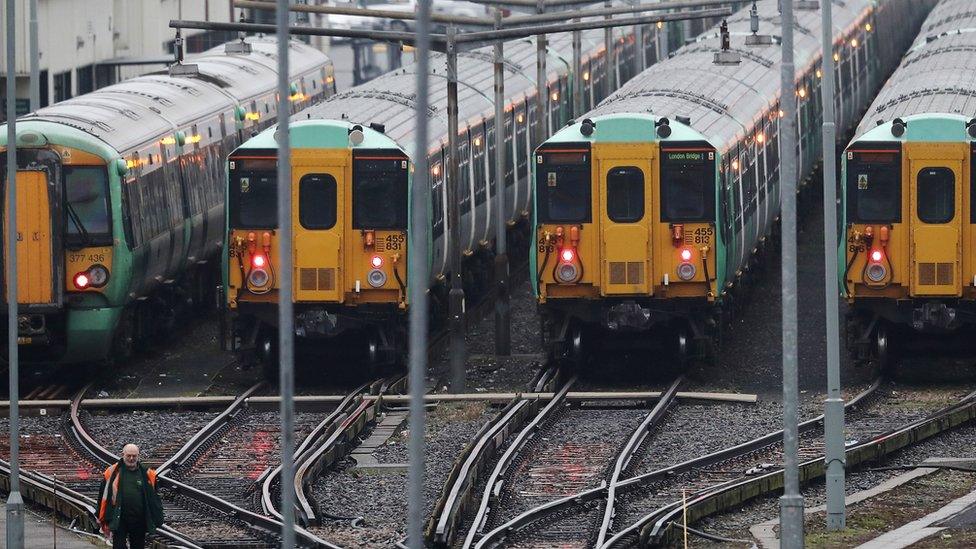
- Published16 December 2016
